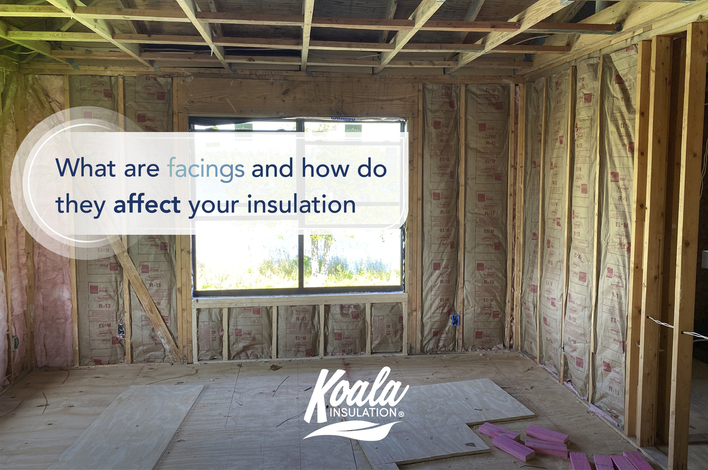
What are facings and how do they affect my insulation?
When it comes to insulation, many people focus on the type of insulation and its R-value, but one aspect that is often overlooked is the facing. Facings are the material that covers the insulation and are often used to create a vapor barrier, provide a decorative finish, or protect the insulation. Understanding facings and how they affect your insulation can help you make a more informed decision when it comes to choosing the right insulation for your home.
One of the most important functions of facings is to create a vapor barrier. A vapor barrier helps to prevent moisture from penetrating the insulation and causing mold or mildew. Vapor barriers are typically made from polyethylene or kraft paper and are installed on the warm side of the insulation. This means that if you live in a cold climate, the vapor barrier should be installed on the inside of the insulation, and if you live in a warm climate, the vapor barrier should be installed on the outside of the insulation.
Another function of facings is to provide a decorative finish. Many types of insulation come with facings that are designed to match the finish of your walls or ceilings, making them an aesthetic choice as well. This can be especially useful when installing insulation in unfinished basements or attics where the insulation will be visible.
Facings also protect the insulation from damage or degradation. Insulation can be sensitive to moisture, UV rays, and other environmental factors. Facings can help to protect the insulation from these factors and extend its lifespan.
When it comes to choosing the right facing for your insulation, it's important to consider your specific needs. For example, if you're installing insulation in a damp area of your home, such as a basement, you'll want to choose a facing that includes a vapor barrier. If you're installing insulation in an area where it will be visible, you'll want to choose a facing that matches the finish of your walls or ceilings. And if you're installing insulation in an area that is exposed to the elements, you'll want to choose a facing that is UV resistant.
One thing to consider when choosing insulation with facings is that it can make the insulation less effective. The facing can reduce the R-value of the insulation, which means that it may not be as effective at insulating your home. It is important to check the R-value of the insulation with the facing and without it. Also, the facing can make the insulation harder to install, as it may not be able to be cut or shaped as easily as unfaced insulation.
In conclusion, facings play an important role in insulation, providing a vapor barrier, decorative finish and protection. When choosing insulation, it is important to consider the type of facing that is used and how it will affect your insulation's performance. Make sure to check the R-value of the insulation with and without the facing, and also consider the ease of installation. With the right facing, your insulation can be more effective, last longer and enhance the aesthetic of your home.
Ready to book your free insulation evaluation?
We have 3 convienant ways for you to get in touch
We Provide Insulation Services to the Following North Broward & Boca Areas
BOCA RATON, DELRAY BEACH, POMPANO BEACH, CORAL SPRINGS, TAMARAC, DEERFIELD BEACH
Counties Served
PALM BEACH, BROWARD
Zip Code
33431, 33432, 33433, 33444, 33445, 33483, 33486, 33487, 33076, 33428, 33434, 33446, 33484, 33496, 33498, 33063, 33065, 33071, 33321, 33064, 33067, 33073, 33441, 33442
